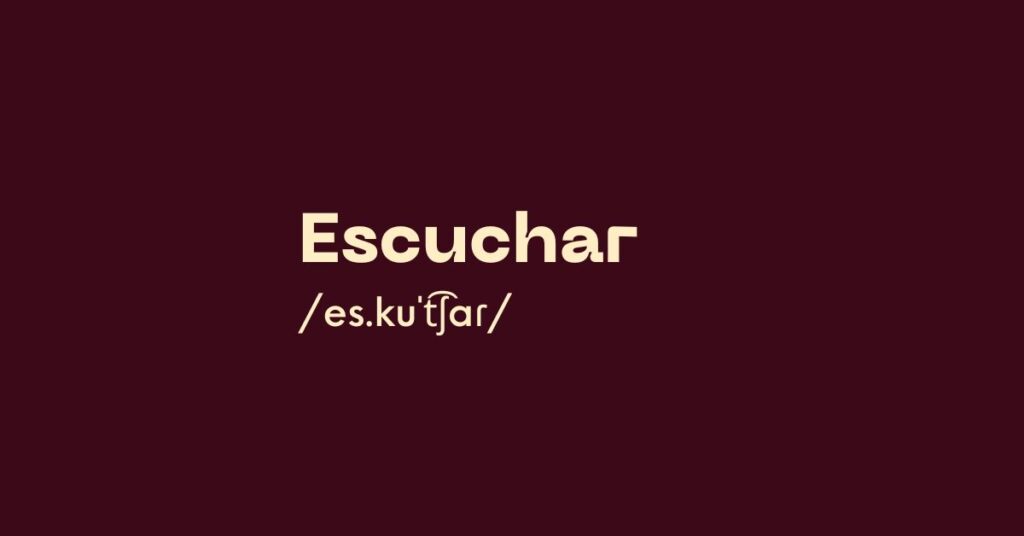Today’s Spanish word of the day is “escuchar”.
It’s a verb usually translated as “to listen to”, though it can also be translated as “to hear” in some contexts.
Like the distinction between “to listen to” and “to hear” in English, there’s usually a distinction between the verbs “escuchar” and “oír” in Spanish. “Oír” means “to hear” (whether you are paying attention or not), while “escuchar” means “to listen”, which implies paying conscious attention to what you are hearing.
The word “escuchar” comes from Latin auscultare, meaning “to listen”. English also has a word derived from this root, “to auscultate”, which is a medical term referring to the act of examining someone by listening through a stethoscope or other device.
Unlike in English where you normally listen to something, the Spanish verb “escuchar” doesn’t take a preposition (like “to”) after the verb. Therefore, you would say “Yo escucho música” (literally “I listen music”), rather than “Yo escucho a música” (literally “I listen to music).
“Escuchar” is a regular verb that has the same conjugation pattern as other regular -ar verbs.
Example sentences
Ellos escuchan la radio todos los días.
They listen to the radio every day.
Me gusta escuchar las olas del mar.
I like to listen to the ocean waves.
Escucha con atención.
Listen carefully.
Escuché un ruido extraño anoche.
I heard a strange noise last night.
El psicólogo escucha no solo las palabras, sino también los silencios.
The psychologist listens not only to the words but also to the silences.

